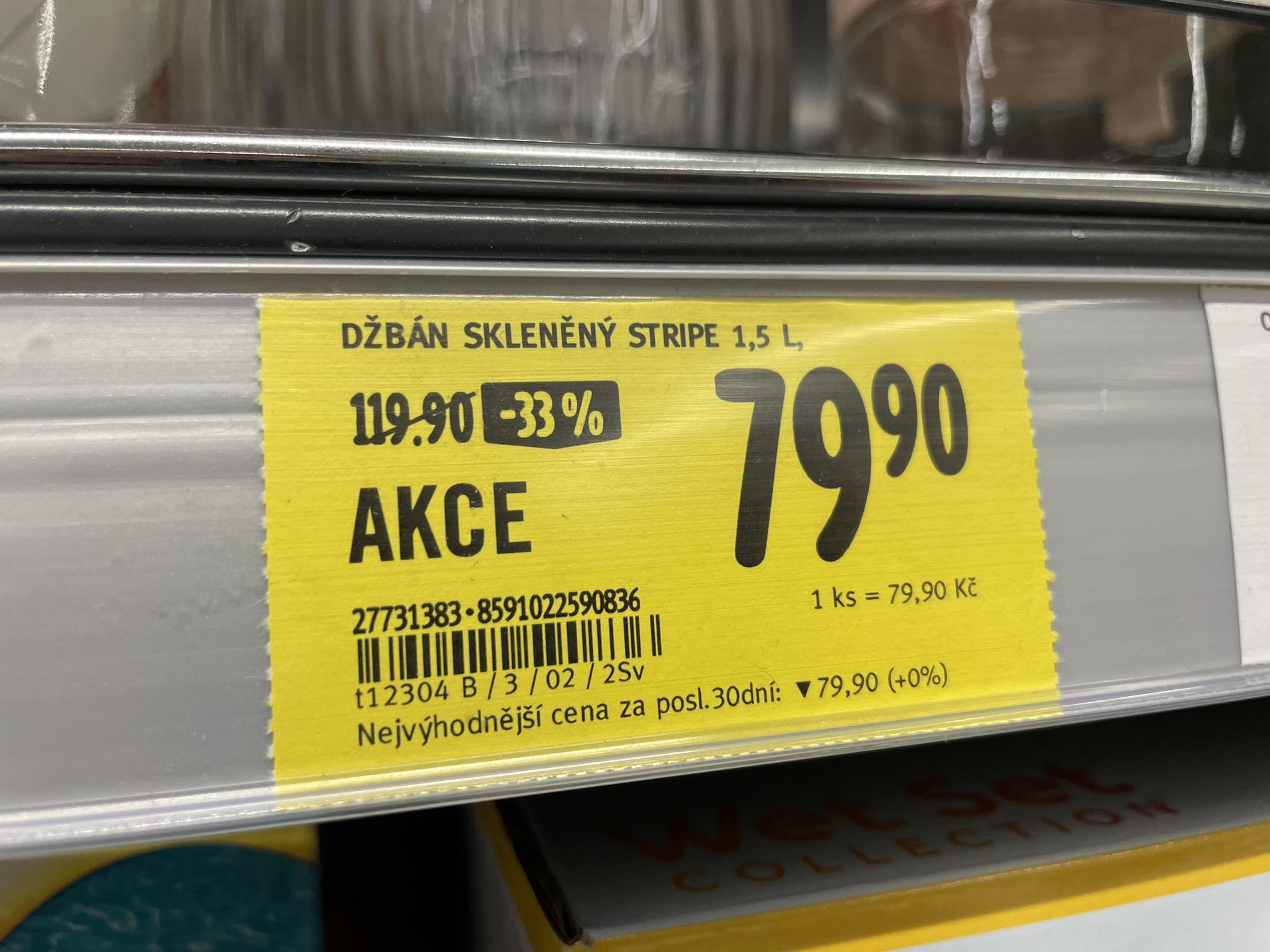
Adam Simota | 25.3.2025
A new era of cryptoasset regulation under the supervision of the CNBTaxes, accounting, law and more. All the key news for your business.
Veronika Odrobinová | July 12, 2023
Simply put, an unfair commercial practice is a false or misleading act that may influence your decision whether or not to buy goods. False discounts are an example of such behaviour. This is a situation where a trader gives an exaggerated discount on goods based on a price, at which the product was never actually being sold (by anyone). The amendment to the Consumer Protection Act was supposed to put a stop to these imaginary special offers. Why hasn’t it happened?
The aforementioned amendment was intended to prevent deceptive behaviour by imposing an obligation on traders to calculate the discount from the lowest price, at which they sold the goods in the last 30 days. Only perishable goods were exempted. When you add together this exception and the ingenuity of retailers, the result can be, for example, “FREE math lessons” on price tags.
What are we talking about? See how some retailers dealt with the new legislation, which was supposed to unmask bombastic discounts.

The legal obligation is rendered in small print in the last line. In this particular case, if you have a magnifying glass with you, you will see that the goods are not discounted. Even without a magnifying glass, however, you can see that the current price, CZK 79.90, is 33% lower than the (apparently) randomly selected number 119.9. Mathematical curiosity. Probably. The term “SPECIAL OFFER” cannot be missing. However, it is difficult to say what it refers to.
Is that all right? According to Veronika Odrobinová, it is not. “Such a conception of the price tag is a misleading practice described in Section 5(2)(d) of the Consumer Protection Act. It is hard to see the “math lesson” as anything other than purposefully confusing. By comparing the current price with a random higher number, the impression of a discount is created. This misleads the consumer as to the existence of a specific price advantage and may lead him or her to make a purchasing decision,” explains the lawyer, adding the passage from the Consumer Protection Act mentioned above:
“A commercial practice containing truthful information shall also be deemed to be misleading, if it leads or is likely to lead the consumer to make a purchasing decision, which he would not otherwise have made, if it misleads or is likely to mislead the consumer in any way as to the price or the method of calculating the price or the existence of a particular price advantage.”
The primary purpose of the amendment was, as stated in the explanatory memorandum, “to strengthen transparency in informing consumers about the discounts provided on products and thus prevent artificial price increases and misleading consumers about the amount of the discount provided”. So what do traders face for breaking the law? “Under Section 24(19)(e) of the Consumer Protection Act, there is a penalty of up to CZK 5 million,” Ms Odrobinová explains.
There is one more catch, however, and that is the exception for perishable products. The CTIA concluded that such products include all products that have an expiry date indicated on the packaging. “Such an interpretation goes against both the intent of the legislator and the purpose of the statutory regulation,” Veronika Odrobinová believes.
The explanatory memorandum to the amendment to the Consumer Protection Act directly states: “Most of these will be foods with a short shelf life or for immediate consumption, such as dairy products, delicatessen products, meat products and cold cuts, fresh baked goods, fish, etc.” As can be seen from the photograph in the text, traders use the deceptive practice even for products that are clearly not perishable (glass jar).
“An interpretation that extends the statutory exemption to any product that the manufacturer marks with an expiration date seems wholly unreasonable. It is of course tricky to pronounce a specific time limit for the perishing of a product. It is probably better to settle for a general definition. But it must not be interpreted arbitrarily. In light of the amendment, a restrictive interpretation by the CTIA, for which the above-mentioned statutory support is unambiguous, would be more meaningful for consumer protection,” says Odrobinová.
So how to change the interpretation of the CTIA? “The primary means should be an appeal through suggestions to the CTIA. If there are many such submissions describing blatantly deceptive and misleading practices, a shift could occur. The superior authority is the Ministry of Industry and Trade of the Czech Republic, which can also give instructions in this regard,” Ms Odrobinová concludes.